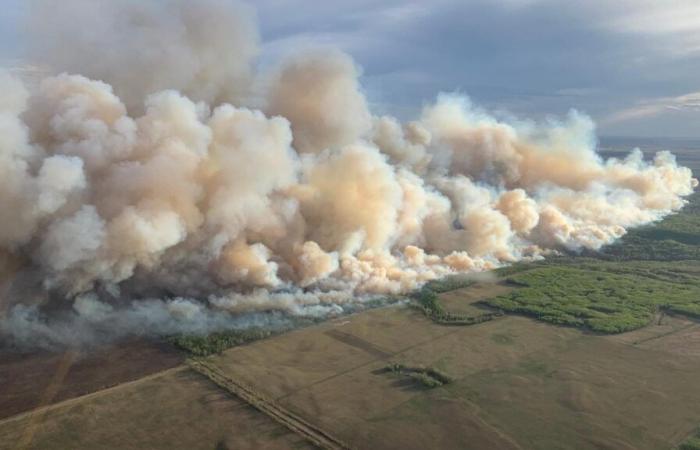According to a study covering the period 2000-2019 published in The Lancet this Thursday, November 28, hundreds of thousands of deaths are linked to air pollution caused by fires.
Air pollution caused by fires is linked to more than 1.5 million deaths per year worldwide, the vast majority of which occur in developing countries, according to a study covering the years from 2000 to 2019 published this Thursday 28 november.
This number of deaths is also expected to increase in the years to come, as climate change makes forest fires more frequent and more intense, indicates the study published in the journal The Lancet.
The international team of researchers examined existing data, both on wildfires raging in nature and on agricultural land burning to clear fields.
From 2000 to 2019, some 450,000 deaths per year from heart disease were linked to air pollution from fires, researchers found. And another 220,000 deaths from respiratory illnesses could be attributed to smoke and particles released into the air by the fires.
Chine, Inde, Nigeria…
Worldwide, a total of 1.53 million deaths from all causes were associated with air pollution from fires, the study found.
More than 90% of these deaths occurred in low- and middle-income countries, including almost 40% in sub-Saharan Africa alone. The countries with the highest number of deaths are China, the Democratic Republic of Congo, India, Indonesia and Nigeria.
A record number of illegal burning of agricultural fields in northern India is partly responsible for the apocalyptic-looking cloud of pollution, with concentrations of harmful microparticles well above international health standards, which covers the Indian capital.
The study's authors call for “urgent action” to address the enormous number of deaths caused by these fires, emphasizing the “climate injustice” experienced by poor countries.
Additionally, ways to avoid smoke from fires (moving away from the most polluted area, using air purifiers and masks, staying indoors) are not accessible to people in poorer countries , emphasized the researchers. The latter therefore call for more financial and technological support for the populations of the hardest hit countries.






